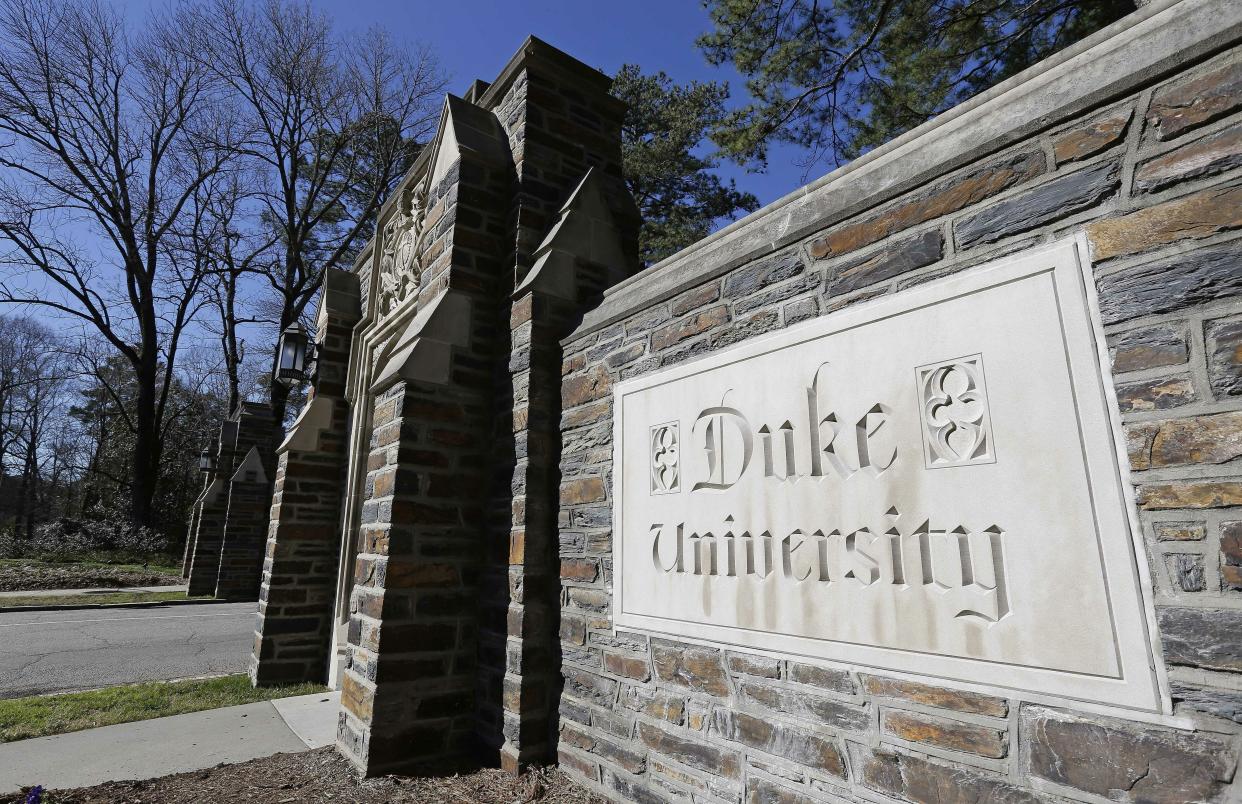Duke Agrees To Pay $112 Million After Being Accused Of Falsifying Grant Research

Duke University has reached a $112.5 million settlement with the U.S. government after being accused of falsifying scientific research to claim millions in federal grants, the Department of Justice announced Monday.
The North Carolina school was accused of knowingly submitting 30 grant applications containing falsified or fabricated data to the National Institutes of Health and the Environmental Protection Agency from 2006 to 2018, authorities said.
The settlement money will reimburse the government for the grants it received and cover associated penalties, the school said.
“We expect Duke researchers to adhere always to the highest standards of integrity, and virtually all of them do that with great dedication,” university President Vincent E. Price said in a statement. “When individuals fail to uphold those standards, and those who are aware of possible wrongdoing fail to report it, as happened in this case, we must accept responsibility, acknowledge that our processes for identifying and preventing misconduct did not work, and take steps to improve.”
It was a former employee at the private school, Joseph Thomas, who brought the allegations to light after filing a lawsuit in 2014 under the whistleblower law, the False Claims Act. Under the terms of the act, he will receive $33,750,000 from the settlement, the DOJ said.
His lawsuit accused former Duke biologist Erin Potts-Kant of co-authoring the fraudulent reports, which were later retracted. She was arrested in 2013 for embezzling money from the school and pleaded guilty to two counts of forgery and paid restitution to the school.
Two of her supervisors were implicated in Thomas’ lawsuit and accused of negligence and ignoring warnings of misconduct, according to the student-led university paper, The Chronicle.
Duke argued in its court filings that it became aware of Potts-Kant’s misbehavior only after she applied for the grants.
Love HuffPost? Become a founding member of HuffPost Plus today.
This article originally appeared on HuffPost.

